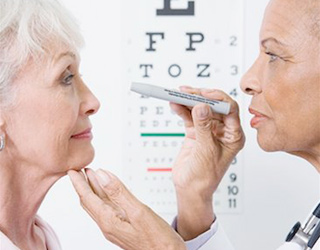What to Expect After LASIK Surgery
Patients who undergo laser vision correction often experience improvement in their vision within 24 hours of the procedure. It is important to note, however, that changes to your eye will occur subtly during the months after LASIK surgery, and you should expect your vision to stabilize in about one to three months.
Recovering After LASIK Surgery
Mild discomfort may occur immediately following the procedure, and patients are encouraged to keep their eyes closed as much as possible in the hours after surgery to reduce the risk of irritation. After having LASIK, the best thing you can do is go home and rest. Having any kind of surgical procedure, LASIK included, can be very tiring. Resting after LASIK is the best way to start your recovery process off on the right foot.
Patients will be provided with eye drops that should be administered at home as directed. It is important to wear any protective eyewear given to you by your physician, especially while sleeping or napping. After LASIK, your eyes will be more sensitive, and need extra protection.
In any case, you should never rub your eyes, but after LASIK, this is especially true. Rubbing your eyes after LASIK can cause serious damage to the flap created during the procedure. If your eyes are itchy, use this as an opportunity to use your eye drops.
Blurry vision often subsides within 24 hours of the procedure, this time frame varies from patient to patient. Many patients are able to return to work the very next day. Vision after LASIK may take a few days before it seems improved. Some patients will experience a dramatic change, but others may have it take a little longer. Both of these experiences are completely normal! It’s also normal if your vision seems foggy, blurry, or smoky in the days after LASIK. This is often just a sign that your vision is starting to stabilize after having LASIK. You’ll notice that your vision will only continue to improve after LASIK and become clearer as you recover.
Side Effects of LASIK
Side effects that may occur immediately after LASIK surgery may include:
- Sensitivity to light
- Itching or burning of the eyes
- Hazy or blurry vision
- Bloodshot eyes
- Dry eyes
While these symptoms are not uncommon after LASIK surgery, they are generally mild and usually subside within a few days.
The Follow-Up Appointment
Patients who undergo LASIK surgery should return to SightMD within 24 hours of the procedure so that your eye doctor can monitor the healing process. During this appointment, our surgeons will perform a thorough eye examination, test your vision, and, if necessary, prescribe antibiotic eye drops to prevent infection in the eye. They will also address any of your concerns and provide further instructions for caring for your eyes during the recovery period. You should expect to undergo regular eye exams in the first few months after LASIK surgery to ensure that your vision is improving according to plan.
Even though your vision has improved, getting LASIK does not mean that you will stop seeing your eye doctor. It can take several months before your eyes have completely recovered after undergoing LASIK. It’s important to attend all follow-up appointments, even if your vision has already started improving after LASIK eye surgery. These appointments are a crucial part of the recovery process.
Promoting Recovery
To promote a speedy recovery, there are several activities and habits that our eye doctors recommend avoiding in the days and weeks following the procedure which include:
- Wearing eye makeup or lotions
- Participating in contact sports
- Rubbing the eyes
- Swimming or using a hot tub
- Excessive television or computer use
If you are uncertain about when you can return to a specific activity, the doctors and staff at SightMD are always available to answer your questions and assist in your recovery.

Understanding Astigmatism
What is Astigmatism? Astigmatism is a refractive error that occurs when the cornea or lens of the eye has…

Understanding what Age-Related Macular Degeneration is
Age-related macular degeneration (AMD) is the most common cause of vision loss in individuals over the age of 50….

A Comprehensive Guide To Caring For Your Contact Lenses
In an age where people are increasingly neglecting their health, it is essential to take the necessary precautions to…